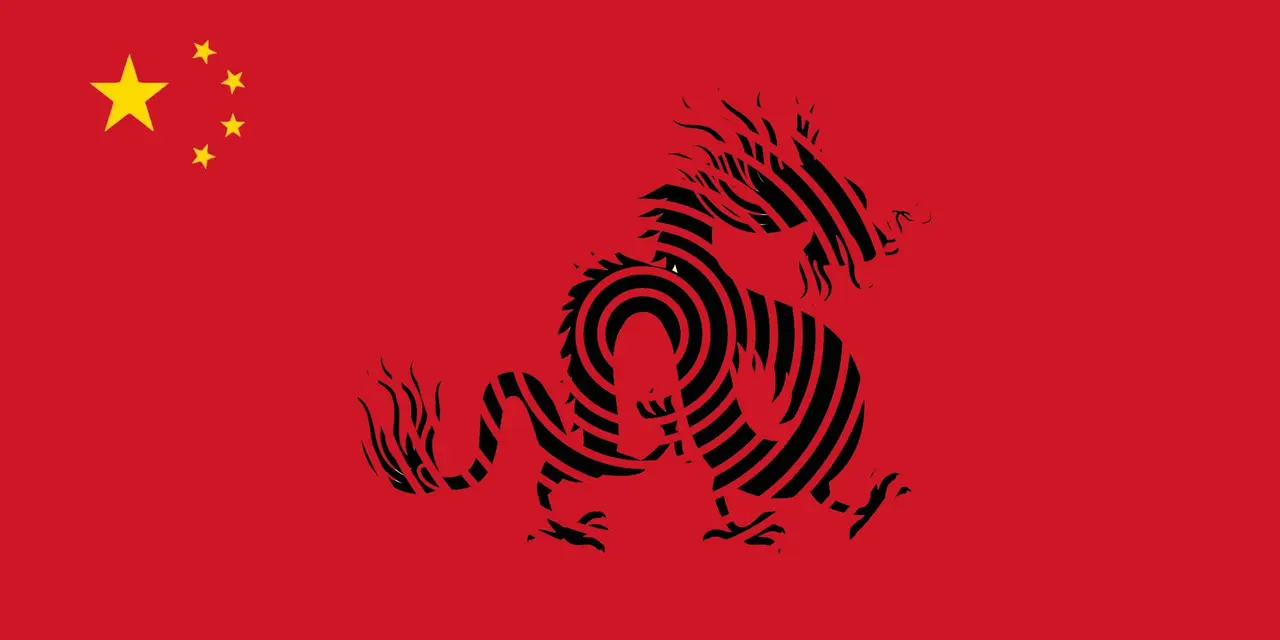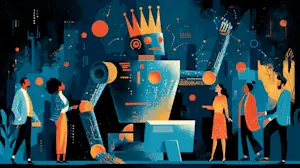Chinese AI Startup MiniMax Challenges Industry Giants with Advanced AI Models
2 Sources
2 Sources
[1]
AI Underdog: Chinese Startup's Ambitious Bid to Unseat OpenAI and Google
Chinese AI startup MiniMax, backed by Alibaba and Tencent launches three new AI models The headlining model, MiniMax-Text-01, is a text-only model with 456 billion parameters. MiniMax claims this model outperforms rivals such as Google's Gemini 2.0 Flash. The model outdid other available AI in benchmark tests such as MMLU and SimpleQA, which check how well a model can solve math problems and answer factual questions. This model also boasts a 4 million token context window, which can analyze about 3 million words at once, roughly 31 times larger than GPT-4o's context window.
[2]
Chinese AI company MiniMax releases new models it claims are competitive with the industry's best
Chinese firms continue to release AI models that rival the capabilities of systems developed by OpenAI and other U.S.-based AI companies. This week, MiniMax, an Alibaba- and Tencent-backed startup that has raised around $850 million in venture capital and is valued at more than $2.5 billion, debuted three new models: MiniMax-Text-01, MiniMax-VL-01, and T2A-01-HD. MiniMax-Text-01 is a text-only model, while MiniMax-VL-01 can understand both images and text. T2A-01-HD, meanwhile, generates audio -- specifically speech. MiniMax claims that MiniMax-Text-01, which is 456 billion parameters in size, performs better than models such as Google's recently unveiled Gemini 2.0 Flash on benchmarks like MATH and SimpleQA, which measure the ability of a model to answer math problems and fact-based questions. Parameters roughly correspond to a model's problem-solving skills, and models with more parameters generally perform better than those with fewer parameters. As for MiniMax-VL-01, MiniMax says that it rivals Anthropic's Claude 3.5 Sonnet on evaluations that require multimodal understanding, like ChartQA, which tasks models with answering graph- and diagram-related queries (e.g. "What is the peak value of the orange line in this graph?"). Granted, MiniMax-VL-01 doesn't quite best Gemini 2.0 Flash on many of these tests. OpenAI's GPT-4o and Meta's Llama 3.1 beat it on several, as well. Of note, MiniMax-Text-01 has an extremely large context window. A model's context, or context window, refers to input (for example, text) that a model considers before generating output (additional text). With a context window of 4 million tokens, MiniMax-Text-01 can analyze around 3 million words in one go -- or just over five copies of "War and Peace." For context (no pun intended), MiniMax-Text-01's context window is roughly 31 times the size of GPT-4o's and Llama 3.1's. The last of MiniMax's models released this week, T2A-01-HD, is an audio generator optimized for speech. T2A-01-HD can generate a synthetic voice with adjustable cadence, tone, and tenor in around 17 different languages, including English and Chinese, and clone a voice from just 10 seconds of an audio recording. MiniMax didn't publish benchmark results comparing T2A-01-HD to other audio-generating models. But to this reporter's ear, T2A-01-HD's outputs sound on par with audio models from Meta and startups like PlayAI. With the exception of T2A-01-HD, which is exclusively available through MiniMax's API and Hailuo AI platform, MiniMax's new models can be downloaded from GitHub and the AI dev platform Hugging Face. Just because the models are "openly" available doesn't mean they aren't locked down in certain aspects, however. MiniMax-Text-01 and MiniMax-VL-01 aren't truly open source in the sense that MiniMax hasn't released the components (e.g. training data) needed to recreate them from scratch. Moreover, they're under MiniMax's restrictive license, which prohibits developers from using the models to improve rival AI models, and requires that platforms with more than 100 million monthly active users request a special license from MiniMax. MiniMax was founded in 2021 by former employees of SenseTime, one of China's largest AI firms. The company's projects include apps like Talkie, an AI-powered role-playing platform along the lines of Character AI, and text-to-video models that MiniMax has released in Hailuo. Some of MiniMax's products have become the subject of minor controversy. Talkie, which was pulled from Apple's App Store in December for unspecified "technical" reasons, features AI avatars of public figures including Donald Trump, Taylor Swift, Elon Musk, and LeBron James, none of whom appear to have consented to being featured in the app. In December, Broadcast magazine reported that MiniMax's video generators can reproduce the logos of British television channels, suggesting that MiniMax's models were trained on content from those channels. And MiniMax is reportedly being sued by iQIYI, a Chinese video streaming service that alleges MiniMax illicitly trained on iQIYI's copyrighted recordings. MiniMax's new models arrive days after the outgoing Biden Administration proposed harsher export rules and restrictions on AI technologies for Chinese ventures. Companies in China were already prevented from buying advanced AI chips, but if the new rules go into effect as written, companies will be faced with stricter caps on both the semiconductor tech and models needed to bootstrap sophisticated AI systems. On Wednesday, the Biden Administration announced additional measures focused on keeping sophisticated chips out of China. Chip foundries and packaging companies that want to export certain chips will be subjected to broader license requirements unless they exercise greater scrutiny and due diligence to prevent their products from reaching Chinese clients.
Share
Share
Copy Link
MiniMax, a Chinese AI startup, has released three new AI models that claim to rival or surpass capabilities of leading U.S.-based AI companies, potentially reshaping the global AI landscape.

Chinese AI Startup MiniMax Unveils Cutting-Edge AI Models
MiniMax, a Chinese AI startup backed by tech giants Alibaba and Tencent, has made waves in the artificial intelligence industry with the release of three new AI models that claim to rival or surpass the capabilities of leading U.S.-based AI companies
1
2
. This development marks a significant step in China's efforts to compete with Western tech giants in the AI arena.MiniMax-Text-01: A Powerhouse Text Model
The headlining model, MiniMax-Text-01, is a text-only AI with an impressive 456 billion parameters. MiniMax claims that this model outperforms competitors such as Google's Gemini 2.0 Flash in benchmark tests like MMLU and SimpleQA, which evaluate a model's ability to solve math problems and answer factual questions
1
2
.One of the most notable features of MiniMax-Text-01 is its expansive context window of 4 million tokens. This allows the model to analyze approximately 3 million words at once, which is roughly 31 times larger than the context window of OpenAI's GPT-4o
1
2
. This vast context window enables the model to process and understand much larger amounts of text in a single operation, potentially leading to more comprehensive and nuanced responses.Multimodal and Audio Capabilities
In addition to MiniMax-Text-01, the company has introduced two other models:
-
MiniMax-VL-01: A multimodal model capable of understanding both images and text. While it reportedly rivals Anthropic's Claude 3.5 Sonnet on evaluations requiring multimodal understanding, it falls short of surpassing Google's Gemini 2.0 Flash and some other leading models in certain tests
2
. -
T2A-01-HD: An audio generator optimized for speech synthesis. This model can generate synthetic voices with adjustable characteristics in around 17 different languages and can clone a voice from just a 10-second audio sample
2
.
Availability and Licensing
MiniMax has made MiniMax-Text-01 and MiniMax-VL-01 available for download on GitHub and Hugging Face, while T2A-01-HD is exclusively accessible through MiniMax's API and Hailuo AI platform
2
. However, it's important to note that these models are not truly open-source, as MiniMax has not released the components needed to recreate them from scratch. The company has also implemented a restrictive license that prohibits developers from using the models to improve rival AI systems2
.Related Stories
Controversy and Legal Challenges
MiniMax's rapid rise has not been without controversy. The company's AI-powered role-playing app, Talkie, was removed from Apple's App Store in December due to unspecified technical reasons. The app featured AI avatars of public figures without their apparent consent
2
. Additionally, MiniMax is reportedly facing a lawsuit from iQIYI, a Chinese video streaming service, over allegations of illicit use of copyrighted recordings for model training2
.Geopolitical Implications
The release of these advanced AI models comes at a time of increasing tensions between the United States and China in the tech sector. The Biden Administration has recently proposed harsher export rules and restrictions on AI technologies for Chinese ventures, aiming to limit access to advanced AI chips and models
2
. These developments highlight the growing competition and potential for further regulatory challenges in the global AI landscape.As MiniMax continues to push the boundaries of AI technology, its advancements may significantly impact the global AI industry and potentially reshape the competitive landscape between Chinese and Western tech companies.
References
Summarized by
Navi
[1]
Related Stories
MiniMax M1: China's New Open-Source AI Model Challenges Global Leaders with Efficiency and Performance
18 Jun 2025•Technology

MiniMax-M2: The New Open-Source AI Powerhouse Challenging Proprietary Models
27 Oct 2025•Technology

MiniMax prices Hong Kong IPO at top as investor interest in Chinese AI startups surges
30 Dec 2025•Startups

Recent Highlights
1
OpenAI secures $110 billion funding round from Amazon, Nvidia, and SoftBank at $730B valuation
Business and Economy

2
Samsung unveils Galaxy S26 lineup with Privacy Display tech and expanded AI capabilities
Technology

3
Anthropic faces Pentagon ultimatum over AI use in mass surveillance and autonomous weapons
Policy and Regulation





